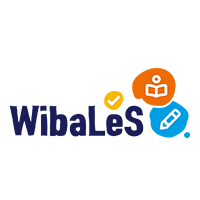The Project in Brief
The objective of the WibaLeS project is to identify which aspects of basic reading and writing lessons are important for effective reading and writing acquisition. Against the background of the findings of recent research on teaching quality and the importance of teachers' professional competence, the question increasingly arises as to what extent the quality of teaching and the teacher influence students' progress in basic reading and writing lessons beyond the specific question of methods.
The project originally planned to include a total of 80 primary schools, each with two classes and therefore 160 teachers. However, due to the COVID-19 pandemic, there were restrictions such as school closures and distance learning during the project period, so the sample was smaller. Data were collected from 35 teachers and their classes. A continuation of the project with the originalnsample size is planned.
Background and Research Questions
The question of the best or most beneficial method for students' acquisition of written language has been a dominant topic of academic and social discourse for decades.
No evidence-based conclusion can be reached regarding the superiority of a particular method in the context of the ongoing debate. Rather, an array of studies has yielded disparate findings with regard to the efficacy of different methods.
Some studies even show considerable differences in students' performance within one instructional methods, suggesting that it is not the teaching method that determines student progress in basic reading and writing lessons, but rather the quality of instruction and its subject-specific differentiation as well as the subject-specific professional teacher knowledge.
Two overarching questions guide the "WibaLeS" project:
- Can learning progress of students in basic reading and writing lessons be better explained by characteristics of instructional quality (classroom management, subject-specifically differentiated support and cognitive activation) than by the respective teaching method used?
- Can characteristics of instructional quality be explained by teachers’ professional knowledge and can an indirect influence of this knowledge on the learning progress of students in basic reading and writing lessons be proven?
